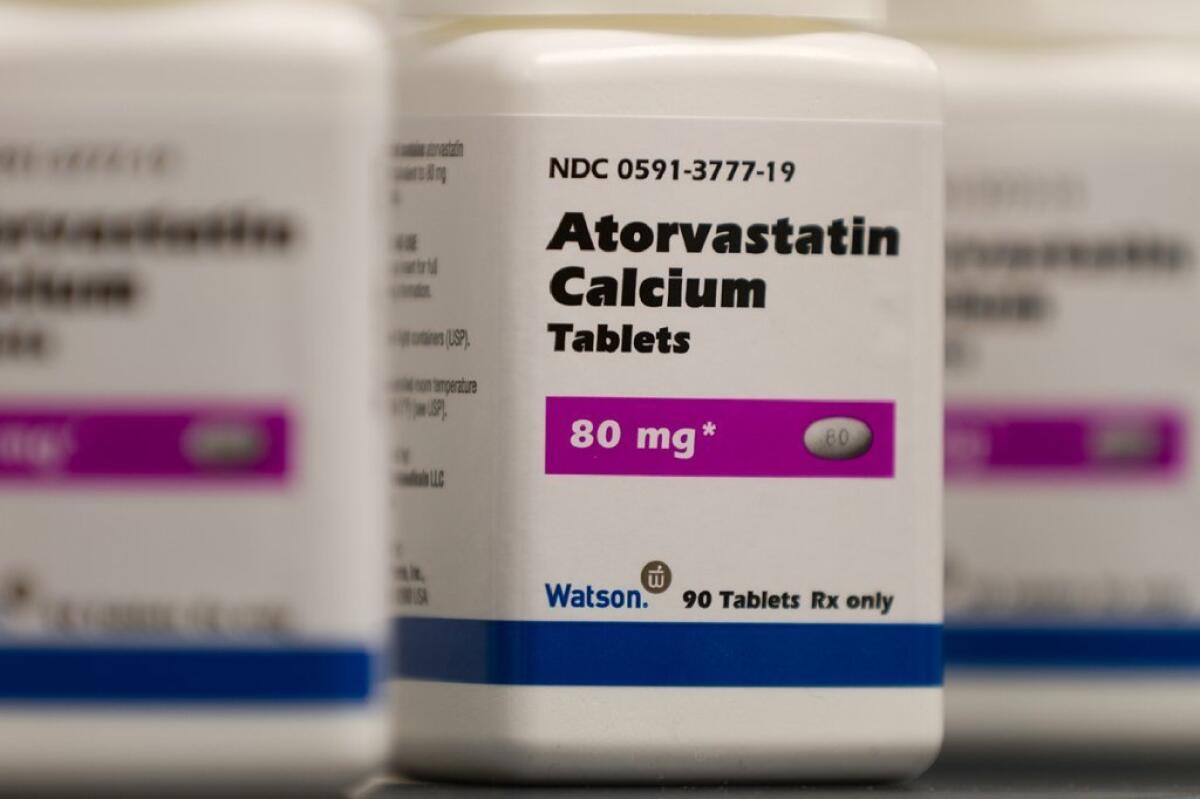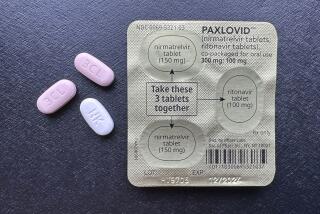Take statins -- or just lead a more healthy lifestyle?

Adding to Americans’ confusion about the ever-changing news from the medical world, there’s a new recommendation that would, in effect, drastically increase the number of people who take statins in an effort to reduce their risk of heart attack and stroke. Statins are potent prescription medications with numerous side effects, including memory loss.
The criteria for taking the statins, under the guidelines released by the American Heart Assn. and the American College of Cardiology (a professional organization, not an actual college), would be widened to include millions of people who have no actual heart disease but are considered to be at a certain level of risk based on such factors as race, age and family history. Statins have been found to reduce the risk of heart attack by 25%.
But that number isn’t as large as it looks when you take into account how many people actually suffer heart attacks. According to a report by the Boston Globe, among the groups deemed to be at risk, “people who haven’t been diagnosed with heart disease would lower their yearly risk of having heart complications from 1.8% to 1.4% if they take a statin.”
Is that worth the side effects and the prospect of taking a prescription medication for the rest of one’s life? It’s a question that people have to grapple with individually, to be sure. But doctors should be giving them the information about risks in those real-life numbers.
Even more, the nation needs a more holistic picture of risks and responses. Yes, in people without heart disease, the risk might be lowered by four tenths of a percentage point. But what would their risk be if they took no statins and instead quit smoking or started exercising? Is lifelong use of statins a better investment of our health dollars than six months of sessions with a nutritionist to help people start healthier eating habits that will lower their weight?
It also would be helpful for consumers to know the financial background whenever new studies or guidelines are issued. Both the heart association and the cardiology group receive donations from pharmaceutical companies. That’s not to say that such donations would have any effect on their recommendations, but it’s one more factor for people to add into their own assessments.
Perhaps, as a journalistic guideline rather than a medical one, all mainstream media reports to the public about new journal articles and new treatment recommendations should routinely include the information about funding. And press releases, which routinely omit such information, should add it.
ALSO:
In talks with Iran, France stood on principle
Photo essay: Obamacare -- and 8 other bungled launches
When a cyclist is killed, why does the driver get the benefit of the doubt?
More to Read
A cure for the common opinion
Get thought-provoking perspectives with our weekly newsletter.
You may occasionally receive promotional content from the Los Angeles Times.







